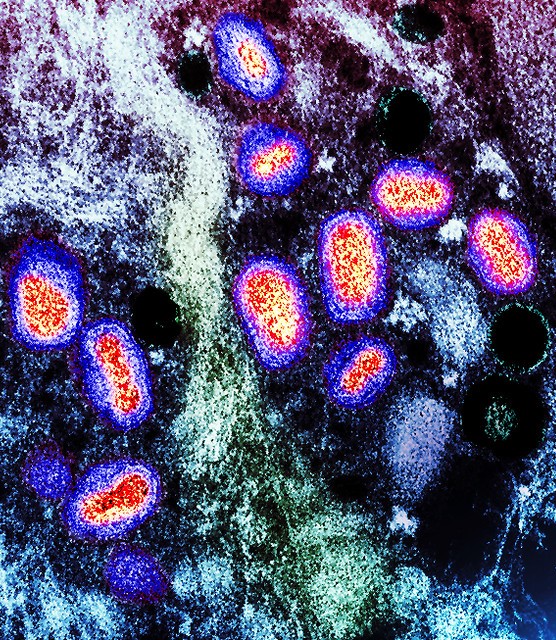
The odds of SARS-CoV-2 infection were 6.2 times greater among household contacts during the Omicron variant wave than during periods dominated by other strains, with rates even higher in children, estimates a study published yesterday in Emerging Infectious Diseases.
A team led by researchers from the National Institute of Infectious Diseases in Tokyo analyzed COVID-19 case rates in a single city during four variant waves: July 1 to October 31, 2020 (before variants of concern), April 1 to 30, 2021 (Alpha), July 3 to August 15, 2021 (Delta), and January 3 to 23, 2022 (Omicron).
Health center staff interviewed COVID-19 patients, regardless of symptom status. Close contacts were tested for COVID-19, even if they were asymptomatic.
The team enrolled 1,057 COVID-19 patients and 3,820 contacts, including 123 patients and 530 contacts in the prevariant period, 246 patients and 998 contacts amid Alpha, 304 patients and 984 contacts during Delta, and 384 patients and 1,318 contacts during Omicron. Close contacts without polymerase chain reaction results were excluded.
3.6-times-higher rate among non-household contacts
COVID-19 rates during Omicron were 35.0% for household contacts and 15.1% for non-household contacts. After adjustment for potential confounding factors, the odds of infection were 6.2 higher among household contacts and 3.6 times greater among other contacts amid Omicron than during the prevariant period.
The risk of infection rose significantly among household contacts aged 0 to 19 years, from 3% before variants of concern to 38% amid Omicron. Infection rates for non-household contacts in this age-group, however, were lower.
COVID-19 rates among household contacts 60 years and older declined 12% during Delta but rose 29% amid Omicron. Throughout all periods, the risk of infection from patients 60 and older was higher than among those in other age-groups.











